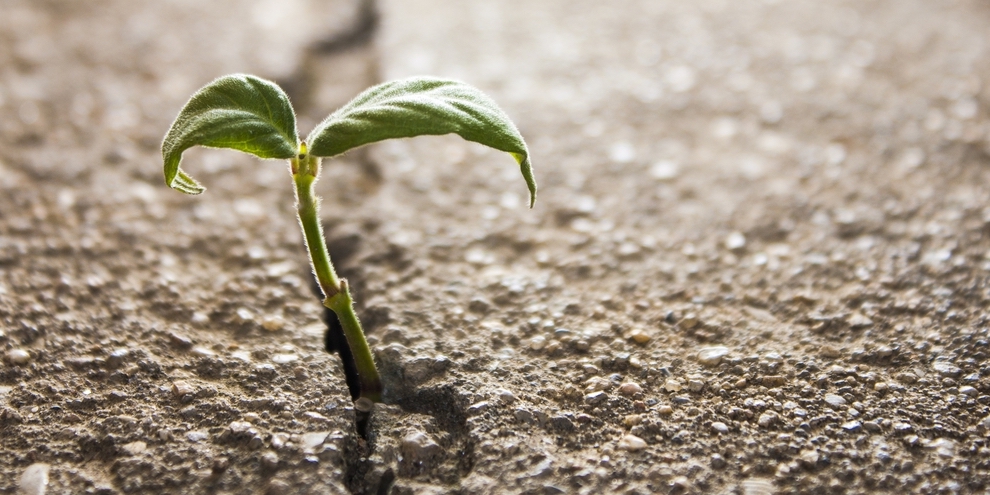Back from the Brink
Feb 16, 2022

ROUNDUP – Our editor looks back at the best articles explaining how Lean Thinking can help in a crisis and bring an organization back from the brink of disaster.
Words: Roberto Priolo, Managing Editor, Planet Lean
“Having no problem is the biggest problem of all.” Well, these days we certainly have no trouble living by these wise words by Taiichi Ohno. In fact, businesses are spoiled with choices when it comes to problems: the devastating effects of the pandemic (is it even over?), shortages of raw materials and parts, ballooning energy costs, the climate emergency, now even the threat of war in eastern Europe. You name a problem; chances are, we’ve got it.
In such difficult times, it is worth remembering that Lean Thinking performs best precisely during a crisis. Whether it’s the burning-platform feeling of urgency or the fear for the very existence of the company, lean thrives on the human tendency of coming together when things turn sour. I have seen this time and time again over the past 10 years, as I listened to the stories of companies turning to lean and finding in it a way to weather the storm.
In this round-up, I look back at some of the stories of companies coming back from the brink thanks to lean. I hope you’ll find them of inspiration, especially if you need a bit of a pick-me-up in the midst of all this uncertainty.
First of all, let’s remind ourselves of why we are doing this. At the beginning of the pandemic, almost two years ago now (#fatigue), Michael Ballé explained why we should still bother with lean “when we are all doomed anyway”. He wrote: “Crises are the moment when smart people figure things out and when you can learn precisely because you’re stimulated and focused […] In the end, growth mindset is what pulls us through, both in good times – with continuous improvement – and in bad, with not making matters worse and figuring a path forward. Lean Thinking is the framework to support and scaffold a growth mindset attitude.” (Full article here.)
Echoing this, while reflecting on the impact of the pandemic on her client companies in Botswana during and after the first lockdown, Sharon Visser said that, as lean thinkers, we found ourselves to be uniquely placed to act as “lean rocks in turbulent waters” – providing people with emotional support and organizations with a way to stay afloat.
But how does lean help, concretely? In many ways, it turns out. One of them, perhaps the most fundamental, is that it helps us to figure out how our customers’ definition of value is changing. Making this point, Josh Howell of the Lean Enterprise Institute wrote that the pandemic seems to have put into focus for most organizations the importance of asking fundamental questions about purpose. “Over the past year, customer needs have changed dramatically, forcing organizations to rethink their whole value proposition,” he said here. What better system to reevaluate your company’s raison d’être than one that has in roots in the definition of value as perceived by the customer?
One of the most inspiring examples of adaptability to to changing needs came from Norway, where – faced with the Covid emergency – a manufacturer of disposable bedsheets decided to reconfigure its site to produce much needed medical gowns and used Lean Thinking to ramp up production from 300 to 2,500 gowns per day. Read the full story here.
One of the things that allowed this Norwegian firm to succeed in its ambitious undertaking was the determination to learn from every experiment and every mistake. This is the sort of mindset that, according to José Ferro (read here), has become a pre-condition for survival for businesses – especially when in a crisis. He wrote: “Faced with an emergency, we need much shorter learning cycles, at least daily. Until recently, this could give a company a competitive advantage; now, it’s a matter of survival. Of course, there is a good chance you will be making mistakes every day, too; however, the very fact that the following day you will be back at it will allow you to adjust, learn and move on to the next experiment.”
Lean is a system for better thinking, which is a good thing in today’s world, where things seem to move (and change) at the speed of light. Indeed, the importance of stopping and reflecting cannot be stressed enough. Hansei is a specialty of lean thinkers, as Bart Rozema explains here. With his hotel facing months of shut-down starting in March 2020, he and his team had a unique opportunity to stop and think about new and better ways to provide value to customers in an effective and safe way – “safe” being the key word in an industry that has, in many ways, borne the brunt of the economic disaster caused by Covid-19.
But what to do when things look really dire? Brutal drops in sales have been experienced by hundreds of thousands of businesses around the world in the first few months of the pandemic and, alas, they can happen again and for a variety of reasons. In this piece, Michael Ballé shares a few insights on how lean can help in such a difficult scenario. Here’s an excerpt: “There is nothing as disheartening as a brutal drop in sales. […] Lean Thinking helps you see beyond that and think of mura-muri-muda in industry terms to understand where the overburden is going to happen and, firstly, avoid making it worse by taking rushed, shoot-from-the-hip decisions and, secondly, engage everyone in discussing the adaptive changes that will need to happen.” This is an article you might want to bookmark, just in case. And for another inspiring example, read this story by Catherine Chabiron about a food company that saw its sales drop by 40%.
And, sure, Covid is not the only problem a company can experience. In fact, there are many examples of organizations that, long before the pandemic even started, leveraged Lean Thinking to ensure their survival. The challenges they faced were disparate. In the case of Norway-based Malm Orstad, for instance, an entire market had dried up, leaving the company with a record deficit just two years after the best performance they had ever recorded. They got around it by rallying everyone around a common objective and by utilizing lean tools to drastically reduce the costs of goods (from 60% to 28% of turnover). Read more about their story here.
For Gilje Tre, another Norwegian firm, the problem wasn’t the market drying up but evolving rapidly after decades of unchanging customer needs. To respond to this situation, they tapped into their lean experience and converted production from mass production to mass customization. This is a fantastic story of reinvention that reminds us that lean really is the gift that keeps on giving. Authors Eivind Reke and Kenneth Gilje wrote: “Gilje Tre is now in the middle of their second transformation. Not because they failed at the first one, but because they realized that the true promise of Lean Thinking could be realized again and again.”
Another favorite of mine is the story of Delta Meat Deli in Maun, Botswana (you might have heard of the place if you have read our latest book Lean Houses for Dragons by Sharon Visser, who actually coached the Delta Meat Deli herself). Back in early 2016, faced with lots of customer complaints, the deli was losing business. Lean turned them around completely, improving quality dramatically while giving a better work-life balance to everyone in the company. A great example of how lean brings benefits to everyone involved!
The last example I’d like to share with you doesn’t exactly speak to the ability of lean to take you back from the brink, but to its ability to keep you healthy against all odds. It’s the story of Deutz Spain, located in a remote corner of the Iberian Peninsula, 2,500 kilometers from its customers. While logistically such relationship might be hard to justify, the company has managed to retain its role as German group Deutz’s largest supplier thanks to its lean transformation, which keeps its quality high, its costs low and its customer satisfied. Read more here.
I hope this round-up has reminded you that there is no crisis too big for you to tackle if you have Lean Thinking in your corner. Lean gives us an opportunity to stop and think, and a roadmap to get ourselves out of trouble.
Let me leave you with a few words by Akio Toyoda, which I find incredibly inspiring. He pronounced them two months into the Covid pandemic during a press conference presenting Toyota’s financial results (full article here): “The number one thing I have learned and that I am prioritizing from my learning is that I am not panicking. I am managing the company very efficiently and stably. In managing the company during these past 10 years, no years were peaceful. Every year, year on year, we have witnessed and experienced a large, drastic change on the scale of a one-in-a-100-year event. So, I think that the calmer I am, the calmer things are within the company […] As for the immediate crisis, the priorities are the same we always have at Toyota: first safety, second quality, third volume, and fourth profit-making […] And based upon these priorities, we will try to develop the Toyota people, and this is also very important.”
THE AUTHOR

Roberto Priolo is the Managing Editor of Planet Lean.
Original Article: https://planet-lean.com/lean-business-survival/
Stay In Touch.
Subscribe to our newsletter and exclusive Leadership content.
We respect your privacy and won’t spam your inbox
